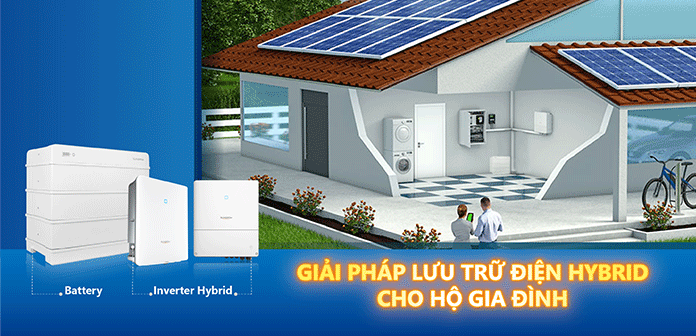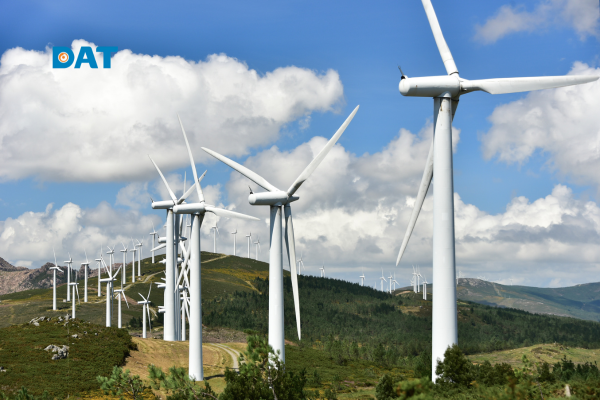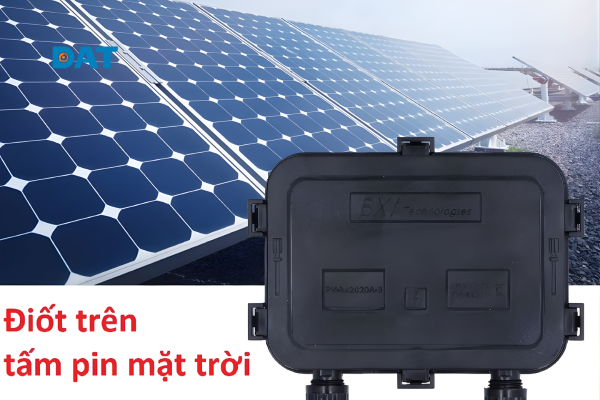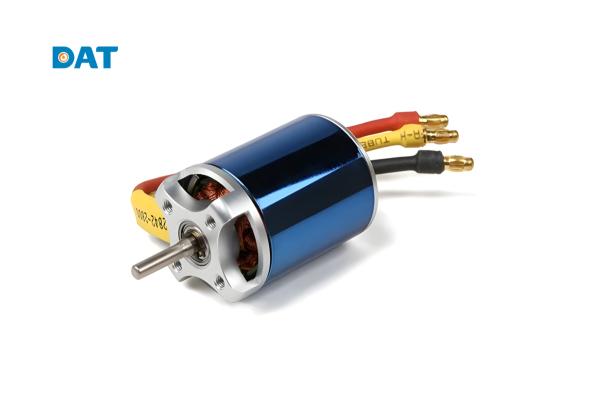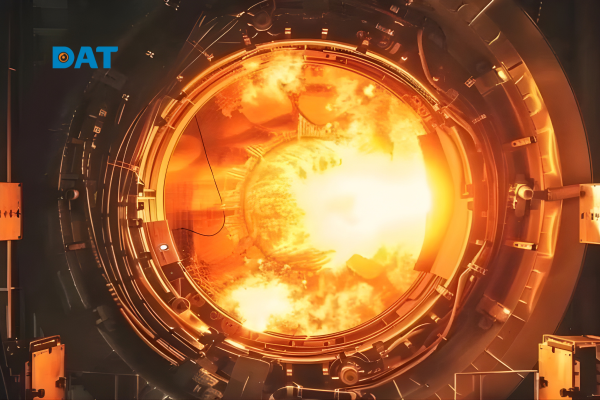Inverter Hybrid là gì? Có gì khác biệt với Solar On Grid Inverter
Trong hệ thống điện mặt trời hiện đại, hybrid solar inverter (hay còn gọi là bộ biến tần năng lượng mặt trời hỗn hợp) đóng vai trò trọng yếu. Đây là thiết bị chuyển đổi dòng điện một chiều (DC) từ các tấm pin mặt trời thành điện xoay chiều (AC) dùng cho thiết bị điện hoặc hòa vào lưới điện quốc gia.
Khác với các loại inverter truyền thống, hybrid solar inverter tích hợp thêm khả năng lưu trữ điện năng vào pin hoặc ắc quy, đồng thời quản lý linh hoạt nguồn điện từ ba nguồn chính: điện mặt trời, điện lưu trữ và điện lưới quốc gia. Nhờ vậy, thiết bị này giúp tối ưu hiệu suất sử dụng năng lượng tái tạo, tiết kiệm chi phí và đảm bảo nguồn điện liên tục ngay cả khi mất điện lưới.
1. Ba loại inverter phổ biến trong điện mặt trời gồm:
1. On-Grid Inverter (Bộ biến tần hòa lưới)
Khái niệm:
On-Grid inverter là bộ biến tần được thiết kế để kết nối trực tiếp với lưới điện quốc gia. Nhiệm vụ chính của loại inverter này là chuyển đổi dòng điện một chiều (DC) từ các tấm pin mặt trời thành dòng điện xoay chiều (AC) phù hợp cho sử dụng trong gia đình hoặc doanh nghiệp, đồng thời hòa lượng điện dư thừa lên lưới điện.
Ưu điểm:
- Chi phí đầu tư thấp nhất trong 3 loại.
- Hệ thống đơn giản, dễ lắp đặt và vận hành.
- Cho phép tận dụng điện mặt trời trực tiếp, giảm đáng kể chi phí tiền điện.
- Phát điện dư thừa lên lưới giúp tăng hiệu quả sử dụng năng lượng.
Nhược điểm:
-
Không hoạt động khi mất điện lưới do nguyên tắc an toàn (hệ thống tự ngắt để bảo vệ nhân viên bảo trì lưới điện).
-
Không có khả năng lưu trữ điện, nên không cung cấp điện khi trời tối hoặc thời tiết xấu.
Ứng dụng thực tế:
Phù hợp với các khu vực có lưới điện ổn định, người dùng muốn tiết kiệm chi phí điện và không có nhu cầu dự phòng điện trong trường hợp mất điện.
2. Off-Grid Inverter (Bộ biến tần độc lập)
Khái niệm:
Off-Grid inverter hoạt động trong hệ thống điện mặt trời độc lập, không kết nối với lưới điện quốc gia. Loại inverter này dùng điện năng được tạo ra từ các tấm pin mặt trời để sạc ắc quy hoặc pin lưu trữ, rồi cấp điện cho các thiết bị tiêu thụ trực tiếp.
Ưu điểm:
-
Tự chủ hoàn toàn về điện năng, không phụ thuộc vào lưới điện.
-
Hoạt động ổn định tại các vùng xa xôi, nơi không có điện lưới hoặc điện lưới yếu.
-
Cung cấp điện liên tục cho các thiết bị quan trọng nhờ hệ thống pin lưu trữ.
Nhược điểm:
-
Chi phí đầu tư cao hơn do cần mua và bảo trì hệ thống pin lưu trữ.
-
Kích thước hệ thống lớn, phức tạp hơn về thiết kế và vận hành.
-
Yêu cầu quản lý năng lượng kỹ lưỡng để đảm bảo pin luôn được sạc đầy.
Ứng dụng thực tế:
Thường được sử dụng tại các khu vực vùng sâu, vùng xa, huyện đảo, hoặc các công trình cần nguồn điện độc lập như trạm viễn thông, nhà dân vùng không có điện.
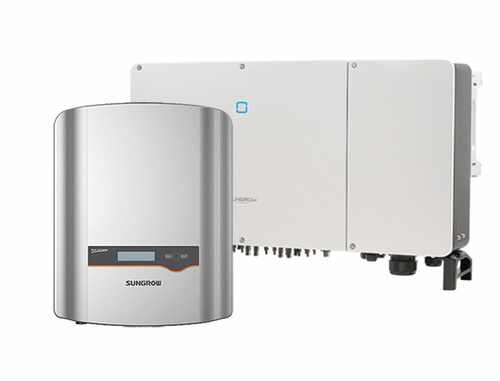
3. Hybrid Solar Inverter (Bộ biến tần năng lượng mặt trời hỗn hợp)
Khái niệm:
Hybrid solar inverter là bộ biến tần kết hợp tính năng của cả On-Grid và Off-Grid inverter. Nó vừa có thể hòa lưới điện quốc gia, vừa quản lý và lưu trữ điện năng vào hệ thống pin hoặc ắc quy để sử dụng khi cần thiết.
Ưu điểm:
-
Linh hoạt chuyển đổi nguồn điện giữa điện mặt trời, pin lưu trữ và điện lưới một cách thông minh.
-
Đảm bảo nguồn điện liên tục cho tải ưu tiên ngay cả khi mất điện lưới (hoạt động như hệ thống độc lập khi cần).
-
Tối ưu hóa chi phí điện năng bằng cách ưu tiên sử dụng nguồn năng lượng mặt trời và điện dự trữ.
-
Hệ thống có thể phát điện dư thừa lên lưới khi pin lưu trữ đầy và có chính sách hỗ trợ.
-
Tích hợp tính năng giám sát và điều khiển thông minh qua app.
Nhược điểm:
-
Chi phí đầu tư ban đầu cao hơn so với On-Grid inverter do tích hợp thêm hệ thống pin và phần mềm quản lý.
-
Cần thiết kế và lắp đặt phức tạp hơn, đòi hỏi kỹ thuật chuyên môn cao.
Ứng dụng thực tế:
Là giải pháp ưu việt cho các hộ gia đình, doanh nghiệp muốn vừa tiết kiệm điện, vừa có nguồn điện dự phòng liên tục, phù hợp với vùng có lưới điện không ổn định hoặc khu vực áp dụng chính sách mua bán điện mặt trời hòa lưới có lưu trữ.
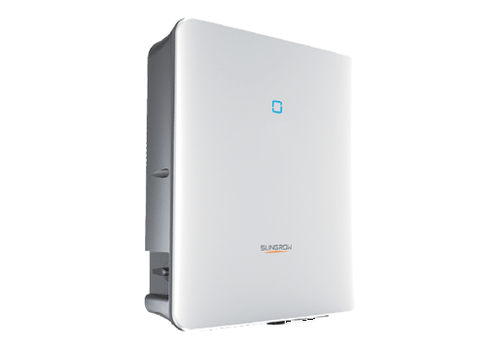
2. Hybrid Solar Inverter (Bộ biến tần năng lượng mặt trời hỗn hợp) là gì?
Hybrid solar inverter là bộ biến tần đa năng có khả năng:
-
Chuyển đổi điện DC từ tấm pin năng lượng mặt trời thành điện AC dùng cho thiết bị điện gia đình hoặc doanh nghiệp.
-
Lưu trữ điện năng dư thừa vào hệ thống pin hoặc ắc quy để sử dụng khi không có điện mặt trời hoặc mất điện lưới.
-
Quản lý và điều phối nguồn điện linh hoạt giữa điện mặt trời, pin lưu trữ và điện lưới quốc gia, ưu tiên sử dụng nguồn điện tiết kiệm chi phí nhất.
-
Cung cấp điện dự phòng liên tục cho các tải ưu tiên khi mất điện lưới.
Nhờ tích hợp nhiều chức năng trong một thiết bị, hybrid solar inverter (bộ biến tần năng lượng mặt trời hỗn hợp) là giải pháp tối ưu cho hệ thống điện mặt trời hiện đại, hướng tới tiết kiệm năng lượng và đảm bảo nguồn điện ổn định.
3. Cấu tạo chính của Inverter Hybrid
Để hiểu rõ cách hybrid solar inverter vận hành, trước hết cần nắm được cấu tạo chính của thiết bị, bao gồm các thành phần thiết yếu phối hợp chặt chẽ để chuyển đổi, quản lý và điều phối năng lượng hiệu quả:
- Bộ biến tần (Inverter): Chuyển đổi dòng điện một chiều (DC) từ pin mặt trời hoặc pin lưu trữ thành điện xoay chiều (AC) phù hợp cho tải tiêu thụ hoặc hòa lưới điện.
- Bộ điều khiển pin lưu trữ: Giám sát và điều phối quá trình sạc, xả pin để đảm bảo hiệu suất và tuổi thọ pin tối ưu.
- Bộ chuyển mạch tự động: Điều phối nguồn điện linh hoạt giữa điện mặt trời, pin lưu trữ và điện lưới quốc gia dựa trên nhu cầu tiêu thụ thực tế.
- Giao tiếp thông minh: Hỗ trợ kết nối và giám sát từ xa qua ứng dụng, cung cấp cảnh báo và báo cáo trạng thái hệ thống.
4. Nguyên lý hoạt động chi tiết của hybrid solar inverter
- Ưu tiên sử dụng điện mặt trời: Điện DC từ các tấm pin năng lượng mặt trời được chuyển đổi thành điện AC và ưu tiên cấp trực tiếp cho các thiết bị trong hệ thống.
- Lưu trữ điện dư thừa: Nếu lượng điện mặt trời vượt quá nhu cầu tiêu thụ, năng lượng dư được chuyển sang bộ điều khiển để sạc pin hoặc ắc quy lưu trữ.
- Phát điện dư lên lưới (nếu có): Khi pin lưu trữ đã đầy, điện dư thừa có thể được hòa ngược lên lưới điện quốc gia tùy theo chính sách và cấu hình hệ thống.
- Cung cấp điện từ pin khi cần thiết: Vào ban đêm hoặc khi nguồn điện mặt trời yếu, inverter sẽ lấy điện từ pin lưu trữ để cung cấp cho các thiết bị ưu tiên, đảm bảo nguồn điện liên tục.
- Chuyển sang điện lưới khi pin hết điện: Nếu pin lưu trữ cạn năng lượng, inverter hybrid tự động chuyển sang lấy điện từ lưới để duy trì hoạt động cho hệ thống.
Toàn bộ quá trình này được điều phối tự động và diễn ra nhanh chóng, giúp tối ưu hóa hiệu quả sử dụng năng lượng và duy trì nguồn điện ổn định cho tải ưu tiên.
Để tìm hiểu chi tiết hơn về cách hệ thống điện mặt trời hòa lưới hoạt động và mang lại lợi ích về tiết kiệm chi phí, bạn có thể tham khảo thêm bài viết về hệ thống điện mặt trời hòa lưới.
5. Tại sao nên sử dụng hệ thống inverter Hybrid
Giải pháp lưu trữ điện Hybrid là hệ thống năng lượng mặt trời có kết hợp pin lithium lưu trữ điện, giúp cung cấp nguồn điện liên tục, ổn định cho các thiết bị điện quan trọng như camera giám sát, tủ lạnh, tủ đông, hệ thống máy tính, wifi, hệ thống báo cháy, cửa cuốn điện, hồ cá Koi… Đồng thời, lưu trữ lượng điện mặt trời dư vào ban ngày để sử dụng vào buổi tối hoặc khi mất điện.
Inverter Hybrid có thể cài đặt nhiều chế độ hoạt động như ưu tiên sử dụng điện từ pin lưu trữ trước, sử dụng điện mặt trời để sạc pin lưu trữ, hay cài mức xả pin tối đa cho pin lưu trữ.
Hệ thống điện mặt trời lưu trữ Hybrid phù hợp cho các hộ gia đình, trung tâm Data, trạm phát sóng viễn thông, bệnh viện, hệ thống server, ngân hàng, nhà máy sản xuất…
6. Ưu điểm và nhược điểm của hệ thống Inverter Hybrid
+ Ưu điểm:
- Duy trì nguồn điện ổn định 24/7 cho các tải quan trọng: Hệ thống Hybrid lưu trữ nguồn điện mặt trời vào pin lưu trữ nên có thể sử dụng vào ban đêm hoặc khi mất điện lưới; đảm bảo các thiết bị điện quan trọng trong gia đình hoạt động liên tục. Thời gian chuyển sang chế độ dự phòng chưa tới 20ms, hầu như không có bất kỳ gián đoạn nào.
- Sử dụng tối đa nguồn điện mặt trời: Vào ban ngày, nếu nguồn điện mặt trời sử dụng không hết thì hệ thống sẽ sạc cho pin lưu trữ để phát ra sử dụng vào ban đêm hoặc khi mất điện. Điều này, tránh việc thất thoát sản lượng và tối ưu nguồn năng lượng điện mặt trời.
- Không phụ thuộc vào điện lưới: Do có pin lưu trữ là nguồn điện dự phòng nên hệ thống không phụ thuộc quá nhiều vào lưới điện Quốc gia, chủ động quản lý nguồn điện hiệu quả. Vì thế, khi xảy ra sự cố về nguồn điện, các thiết bị vẫn hoạt động bình thường, ổn định.
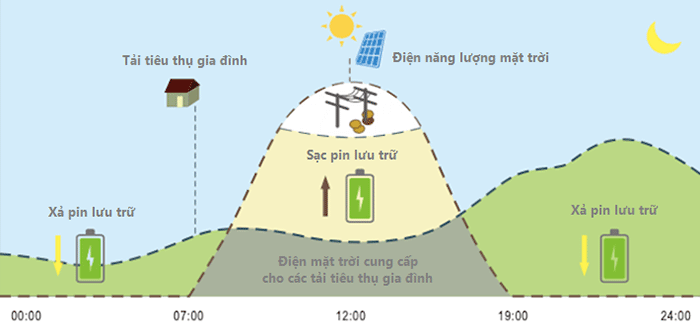
- Tiết kiệm chi phí tiền điện: Với nhiều cơ chế hoạt động, lưu chuyển năng lượng linh hoạt, hệ thống được cấu hình thêm chức năng sạc/xả theo thời gian và nhu cầu thực tế, cho phép sạc pin lưu trữ vào giờ bình thường và phát ra sử dụng vào giờ cao điểm để tiết kiệm chi phí tiền điện đối với khách hàng sử dụng điện 3 mức giá theo khung giờ (cao điểm, bình thường, thấp điểm).
- Giảm ô nhiễm tiếng ồn, an toàn cho môi trường: Hệ thống điện mặt trời Hybrid vận hành theo cơ chế tự động, yên tĩnh không gây tiếng ồn như máy phát điện, không sử dụng nhiên liệu xăng, dầu… thân thiện cho môi trường.
+ Nhược điểm:
Nhiều người thường e ngại về chi phí của hệ thống Hybrid vì khoản đầu tư ban đầu cao hơn so với các dạng hệ thống điện mặt trời khác. Ắc quy và pin lưu trữ thường có giá rất cao nên đẩy chi phí đầu tư tăng theo. Vì thế, giải pháp Hybrid sẽ phù hợp để lắp ở quy mô nhỏ như hộ gia đình, văn phòng để tối ưu về mặt chi phí.
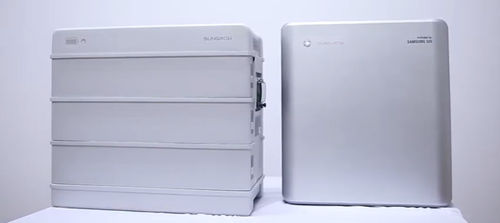
Tuy nhiên, với sự phát triển của khoa học, kỹ thuật, công nghệ bền vững, ứng dụng nhiều cải tiến mới vào các sản phẩm pin lưu trữ điện đang dần giúp giảm giá thành sản phẩm xuống thấp hơn, giúp việc quyết định có nên đầu tư hệ thống điện mặt trời lưu trữ được nhanh chóng và dễ dàng hơn.
Ngoài ra, do công suất hệ thống phụ thuộc nhiều vào công suất tải và thời gian dự phòng; vì thế, để hệ thống đáp ứng nhu cầu của tải thiết bị trong gia đình, vận hành ổn định khi không có lưới điện, bạn cần phải được các đơn vị cung cấp giải pháp lưu trữ điện Hybrid khảo sát, tư vấn để chọn lựa hệ thống có công suất và lưu trữ nguồn điện dự phòng phù hợp.
Inverter Hybrid có nhiều chức năng và cần cài đặt thông số chính xác nên cũng đòi hỏi đơn vị thi công, lắp đặt phải có chuyên môn và am hiểu về kỹ thuật hệ thống.
7. Sự khác nhau giữa inverter On-Grid, inverter Hybrid
Đối với điện mặt trời hòa lưới sử dụng inverter On-Grid thì khi gặp tình trạng mất điện thì hệ thống sẽ tự động ngắt để đảm bảo an toàn cho nhân viên sửa chữa, bảo dưỡng điện lưới.
Còn đối với điện mặt trời có lưu trữ sử dụng inverter Hybrid thì khi mất điện lưới thì các tải ưu tiên vẫn có thể tiếp tục hoạt động ổn định bằng cách lấy năng lượng điện đã được sạc đầy trong pin lưu trữ. Điều này, giúp các thiết bị điện quan trọng trong gia đình hoạt động liên tục, không bị gián đoạn. Khi có điện trở lại thì hệ thống sẽ khôi phục trạng thái hoạt động như bình thường.
8. Chọn giải pháp lưu trữ điện Hybrid hiệu quả – Chọn DAT Group
Hơn 17 năm qua, DAT Group không ngừng phát triển Hệ sinh thái toàn diện, tinh chọn những sản phẩm chất lượng toàn cầu và nghiên cứu các giải pháp gia tăng sự hiệu quả cho khách hàng, đối tác và nhà đầu tư điện mặt trời, năng lượng tái tạo.
Đặc biệt, đối với giải pháp lưu trữ điện Hybrid, đội ngũ kỹ sư, chuyên gia điện mặt trời của DAT Solar sẽ khảo sát thông số tải tiêu thụ, cấu trúc hệ thống điện hiện hữu và nhu cầu back-up nguồn điện cho các tải quan trọng, thời gian tải sử dụng… để tư vấn và đưa ra các phương án triển khai, thiết kế hệ thống điện mặt trời lưu trữ Hybrid phù hợp, quản lý nguồn điện hiệu quả, duy trì nguồn cấp liên tục cho tải ưu tiên và các thiết bị khác trong gia đình.
Vậy, còn chần chờ gì mà không lắp đặt hệ thống điện mặt trời lưu trữ Hybrid cùng DAT Group. Để được tư vấn thêm về giải pháp Hybrid, liên hệ ngay hotline 1800 6567 (miễn phí cước gọi), chúng tôi sẵn sàng đồng hành và hỗ trợ 24/7.

